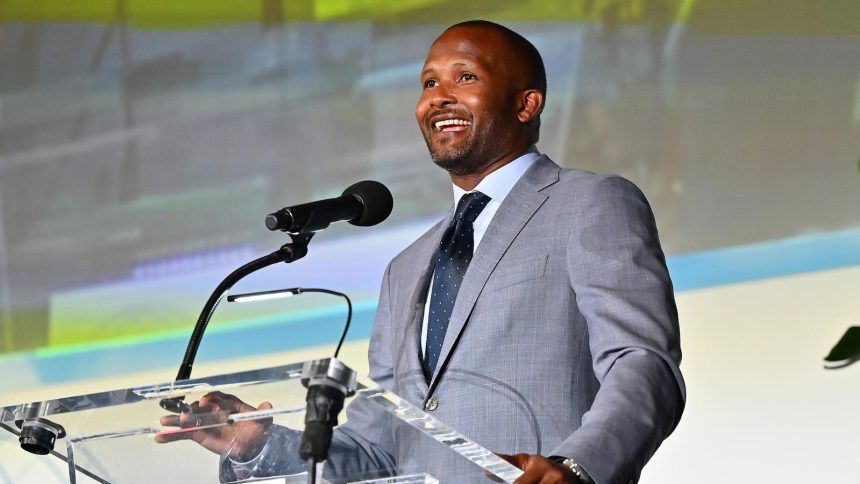Champ Bailey, a Hall of Fame cornerback and former Georgia Bulldog, predicts a victory for the Philadelphia Eagles in Super Bowl LIX, humorously dubbing them the “Philly Bulldogs” due to the strong Georgia alumni presence on their roster. He acknowledges the Kansas City Chiefs’ dominant run and potential for a third straight Super Bowl win, but emphasizes his belief in the Eagles’ robust defense and the leadership of quarterback Jalen Hurts. Bailey highlights Hurts’ consistent ability to secure victories, particularly in the latter part of the season, as a key factor in their success. While many anticipate a Super Bowl MVP performance from Saquon Barkley, riding high on recent game-winning performances, Bailey diverges from popular opinion and predicts Hurts to claim the coveted title. He cites Hurts’ significant impact in their previous Super Bowl encounter against the Chiefs, despite the loss, as a testament to his capability and the high number of touches he gets as a quarterback, increasing his likelihood to impact the game significantly.
Bailey’s prediction stems not only from his football expertise but also from his close observation of the Eagles’ defensive prowess. He challenges the underestimation of Jalen Hurts, underscoring his consistent winning record and effective leadership. While acknowledging Saquon Barkley’s undeniable talent and recent stellar performances, Bailey sees Hurts’ pivotal role as the quarterback and his ability to control the game’s flow as the deciding factor in the MVP race. This perspective underscores Bailey’s belief that while Barkley is a strong contender, Hurts’ influence on the game’s overall outcome makes him the more likely MVP.
Beyond his football analysis, Bailey actively advocates for the benefits of cannabis through his partnership with Trulieve, the world’s largest cannabis retailer. He serves as a Community Outreach Liaison, aiming to dispel misconceptions and educate the public about the medicinal uses of cannabis, especially in his home state of Georgia where it remains illegal. Bailey expresses frustration with the persistent stigma surrounding cannabis, attributing it to a lack of education and research. He seeks to change these outdated perceptions by sharing his own positive experiences and working with Trulieve to promote accurate information.
Bailey emphasizes the importance of challenging the deeply ingrained negative perceptions of cannabis, particularly in the more conservative South. He acknowledges the cultural history and influence of law enforcement that have contributed to these views, recognizing the difficulty of shifting such ingrained beliefs. However, he remains committed to pushing for change and highlighting the positive aspects of cannabis use. He sees education as the key to overcoming these hurdles, enabling people to form their own educated opinions based on factual information rather than inherited stigma.
Bailey’s advocacy is profoundly personal, stemming from his own experience using cannabis during his 15-season NFL career. He clarifies that he began using cannabis after his professional career started, primarily as a means to manage the physical demands and recovery process of practice. Bailey emphasizes his responsible approach, ensuring he never entered a game impaired, and highlights its role in pain management and recovery after intense workouts. He contrasts his usage during his playing days with his current practice, which is more flexible and based on personal need rather than a strict regimen. This personal experience informs his advocacy, allowing him to speak authentically about the potential benefits of cannabis when used responsibly.
Despite the progress made in cannabis education and legalization, Bailey acknowledges the significant challenges that remain. He describes the struggle as climbing a “large wall” of resistance and emphasizes the importance of gaining momentum in changing laws and public opinion. Bailey’s ultimate goal is to see more states legalize cannabis, enabling access for those who could benefit from its medicinal properties. His partnership with Trulieve and his personal story contribute to his ongoing efforts to destigmatize cannabis use and promote its responsible application. His commitment to education and advocacy reflects a deep-seated belief in the potential of cannabis to positively impact lives.



